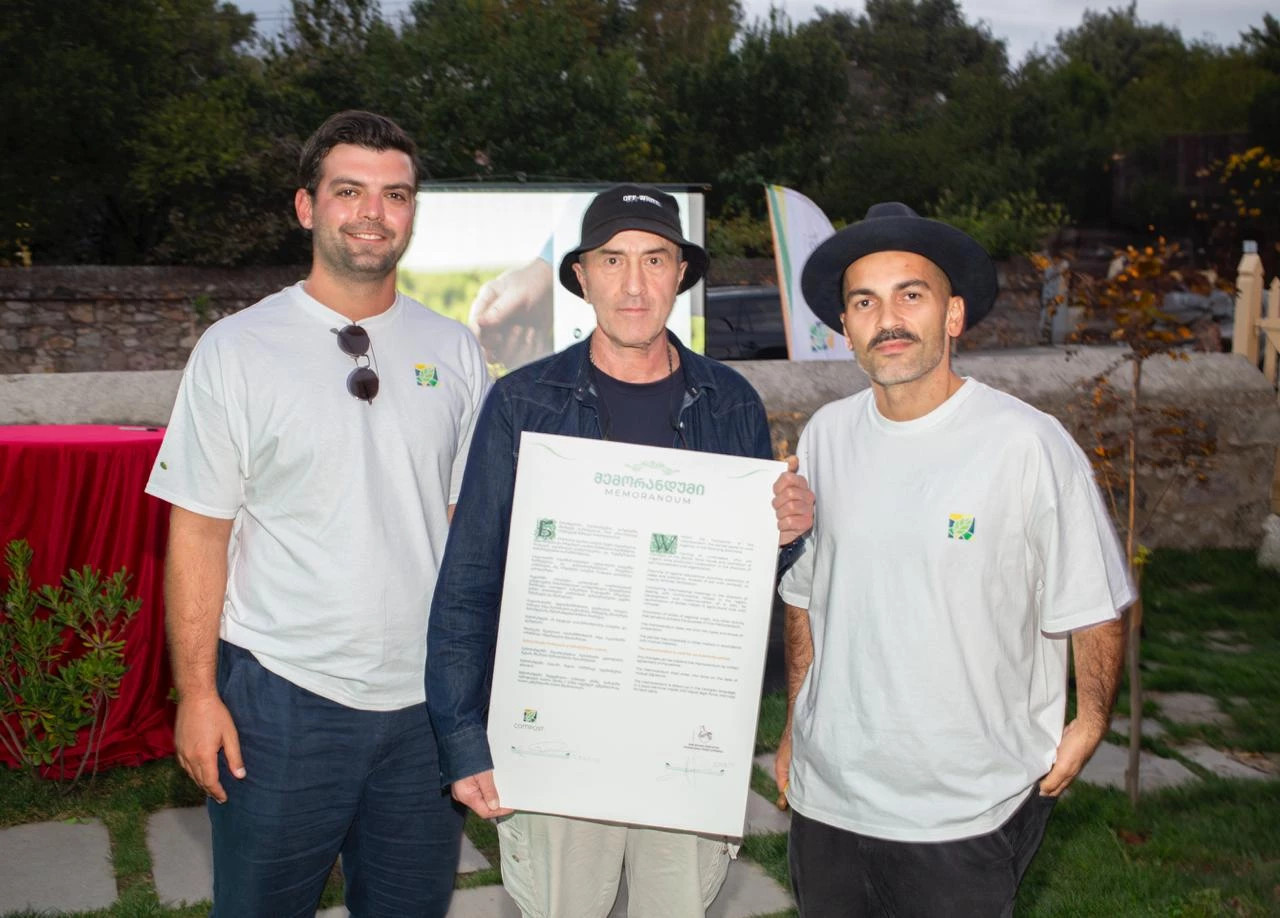"Compost.ge" Signs Cooperation Agreement with Bolnisi Wine Union
The organic fertilizer producer, "Compost" has signed a memorandum of cooperation with the "Union Wine Bolnisi" The agreement aims to restore and improve the health of soil in organic vineyards within the Bolnisi region, addressing issues such as soil erosion and contamination by heavy metals.
Giorgi Kadaria, General Manager of Compost.ge, explained that the partnership will support winemakers in the region. "The Bolnisi Wine Association’’ unites 23 winemakers who produce organic, locally grown vines. Since 70% of our compost is made from wine industry residues like grape pomace & chacha, we felt a responsibility to help raise awareness and support organic production," he said. The agreement includes providing compost to these winemakers, as well as organizing training and informational sessions on waste prevention and composting benefits.
Kadaria emphasized that soil fertilized with compost enriches and improves its structure, plant health and enhances the taste of fruit. "Compost is essential for all farmers, rural, industrial farming, or greenhouse and home-gardening. Compost is a conditioner that regenerates soil, boosts the humus layer, and improves plant nutrition and fruit quality," he noted.

Compared to synthetic fertilizers, compost has a longer-lasting effect, remaining in the soil for extended periods as it is slow release fertilizer. According to Kadaria, compost is also more cost-effective, as it provides greater long-term benefits to both the soil and the environment. waste prevention is a significant challenge in Georgia, and Compost.ge is currently the only company producing compost using private capital investment.
To date, the company has invested 1.5 million GEL.
"We support the state's efforts to address waste prevention and management, though the problem remains serious. There are no waste collection points, so we work directly with winemakers and other producers to collect organic waste. We also source manure from cattle farmers," Kadaria said. He stressed the importance of adopting European regulations, where pollutant producers will be required to prevent and manage their waste responsibly.
.jpeg)

